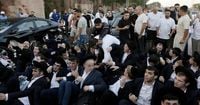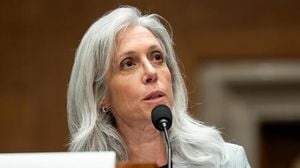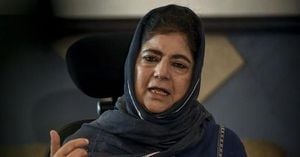Israel’s military landscape shifted dramatically on August 20, 2025, as the Israel Defense Forces (IDF) announced the call-up of approximately 60,000 additional reserve soldiers for deployment in the Gaza Strip. This significant mobilization, revealed in an official IDF statement, comes amid persistent fighting with Hamas and ongoing ceasefire discussions that have yet to yield a breakthrough.
The new intake of reservists will join 20,000 others who have been ordered to extend their current deployment. According to military officials cited by Bloomberg, this surge will bring the total number of Israeli troops in and around Gaza to about 120,000—nearly double the previous figure. The move signals Israel’s intent to escalate its campaign against Hamas, even as diplomatic channels remain open for a possible truce.
For many Israelis, the announcement was a stark reminder of the war’s enduring toll and the government’s determination to maintain pressure on Hamas. The decision to bolster troop numbers, especially at such a scale, underscores both the intensity of the conflict and the challenges facing the Israeli military as it seeks to achieve its objectives in Gaza.
But the mobilization has not occurred in a vacuum. On the very same day, Israel’s internal divisions erupted onto the streets. Hundreds of ultra-Orthodox protesters blocked several major roads and highways across central Israel, expressing outrage at a recent IDF operation targeting ultra-Orthodox draft dodgers. According to reports from The Times of Israel, the protests were triggered by the army’s efforts to enforce conscription laws among a community that has long resisted mandatory military service.
The scenes were tense and disruptive. Demonstrators, many dressed in traditional black hats and coats, linked arms and chanted as they halted traffic in Tel Aviv and Jerusalem. The protests snarled traffic and drew a heavy police response, reflecting the deep societal rifts that Israel must navigate even as it faces external threats.
The ultra-Orthodox community, known in Hebrew as Haredim, has historically enjoyed exemptions from military service, a legacy of political compromise dating back to the early years of the state. However, as the war in Gaza drags on and the demand for manpower grows, the Israeli government has faced mounting pressure to close this loophole. The latest IDF operation, aimed at arresting those who have evaded the draft, was a flashpoint—one that brought simmering tensions to a boil.
“Hundreds of ultra-Orthodox protesters blocked several major roads and highways across central Israel on Wednesday over an arrest operation launched by the Israeli army against ultra-Orthodox draft dodgers,” reported The Times of Israel, capturing the scale and urgency of the demonstrations.
For many in the Haredi community, the issue is not just about military service but about identity and religious autonomy. Leaders argue that Torah study is their form of national service, and that conscription would threaten their way of life. The government, meanwhile, insists that national security requires a fairer distribution of the burden—especially as the conflict with Hamas intensifies.
The timing of the protests, coinciding with the IDF’s announcement of a massive troop buildup, highlights the complex interplay between Israel’s security imperatives and its internal social fabric. As reservists prepare to enter Gaza in greater numbers, the state is also grappling with the question of who should serve—and who should be exempt.
“On August 20, 2025, Israel's military announced it is calling up about 60,000 more reserve soldiers to join the war against Hamas in Gaza,” Bloomberg reported, emphasizing the scale of the mobilization. The addition of these reservists, together with the extension of service for 20,000 others, represents one of the largest call-ups in recent memory. It is a measure of how seriously the government views the current phase of the conflict.
Military officials have been tight-lipped about the specifics of the planned offensive, but the increased troop presence suggests that Israel may be preparing for expanded ground operations or a protracted campaign. The IDF has faced fierce resistance from Hamas fighters, and urban warfare in Gaza’s densely populated neighborhoods has proven costly and complex.
Against this backdrop, the political debate over conscription is likely to intensify. Centrist and secular parties have long pushed for greater integration of the ultra-Orthodox into national service, arguing that shared sacrifice is essential for national unity. Religious parties, by contrast, have vowed to protect their community’s exemptions, warning that forced conscription could spark deeper unrest.
The government’s balancing act is a delicate one. On the one hand, it must ensure that the military has the personnel it needs to pursue its objectives in Gaza. On the other, it must avoid alienating a significant and politically powerful segment of the population. The protests on August 20 were a vivid reminder of the stakes—and of the potential for domestic discord to complicate Israel’s security calculus.
Meanwhile, families across Israel are bracing for the impact of the expanded mobilization. Many reservists are leaving behind jobs, businesses, and loved ones to answer the call. For some, the extended deployments are a source of pride; for others, they are a heavy burden. The sense of collective responsibility has always been a hallmark of Israeli society, but it is being tested as never before.
The mood in the country is one of anxious resolve. There is widespread support for the military’s efforts to defend Israel against Hamas, but also growing concern about the war’s duration and cost. The government’s decision to double the number of reservists in Gaza is seen by some as a necessary step; by others, as a sign that the conflict may be far from over.
As the new reservists prepare to join their comrades on the front lines, and as protesters continue to voice their dissent in the streets, Israel finds itself at a crossroads. The coming weeks will test not only the strength of its military, but also the resilience of its democracy and the bonds that hold its society together.
For now, the message from the government is clear: the campaign against Hamas will continue, and the burden of defending the nation must be shared more widely. Whether that message will resonate—or provoke further unrest—remains to be seen.
With more soldiers heading to Gaza and dissent simmering at home, Israel faces a pivotal moment—one that will shape its security, politics, and identity for years to come.




